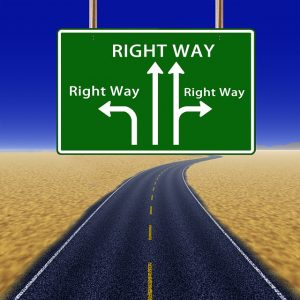Why you and your brain hate business uncertainty

Nothing upsets us more in business than uncertainty. No matter how many years of experience or if you’re just starting out, uncertainty is an unspoken demon.
Business uncertainty is the worst because so much about our business depends on positive outcomes. To be uncertain has the potential to jeopardize all the investments we made in terms of time, money, effort, and being responsible for those depending on us.
While we might not want to acknowledge our uncertainty, we still express it.
We hide behind a veneer of self-confidence.
We notice how quickly anxiety escalates.
We can’t decide what we want.
We complain about not knowing where to start.
We feel that we can’t think straight.
We seek out stress relievers that momentarily remove the knot in our stomach.
Three reasons for hating uncertainty
- It’s ambiguous
- It’s painful
- It’s a threat
When it comes to business decisions, uncertainty is at its worst. A business decision requires sorting through the ambiguity of different kinds of information. It means painfully evaluating the most beneficial outcomes. And lastly, the fear of making the wrong decision is an underlying and haunting threat.
Actually, it’s your brain’s job to reduce uncertainty and return you to a state of knowing and confidence. However, it’s a challenging job.
What your brain is attempting to do is process all the millions of multi kilobytes of information flowing in by looking for recognizable patterns of information that already exists in memories. When it finds a match, a memory category confirms new information as being similar to previous information and experiences. And, that is why we like to make decisions based on what we already know.
When there is not a match, then there’s mental agitation. The mind has to decide what to do with uncertainty. It can reject and ignore, it can give it less of a value of importance or it can continue to let it be a nagging irritant.
When uncertainty becomes a nagging irritant, the brain wants to kick into gear and look for more information. It treats the irritant as a problem to be solved and seeks out missing puzzle pieces.
Eventually, it accumulates and processes all information and arrives at a “best guess” answer.
A “best guess” answer, however, is not necessarily the best decision choice.
Despite how much information the brain has, there are always the unknown factors of possibilities and potential opportunities. Seasoned business entrepreneurs will tell you that many times working through uncertainty was the most satisfying and rewarding part of their business decisions.
And, yes sometimes there are failures and the brain adds those experiences into its files of what not to do. However, when there are unexpected successes, the brain opens up new memory categories for what works.
While you and your brain may hate uncertainty when it comes to making business decisions, moving through it gives you a competitive edge.
While others want to play it safe, your brain has more expertise to draw from in helping you decide which possibilities and potential opportunities are right for your business.
If you’ve encountered uncertainty with making certain business decisions, please feel free to share how you were able to overcome and move on in your business.
Sources:
http://www.nutshell-videos.ed.ac.uk/peggy-series-uncertainty-and-the-brain/
https://www.psychologytoday.com/blog/your-brain-work/200910/hunger-certainty
Image:Pixabay Image 238369